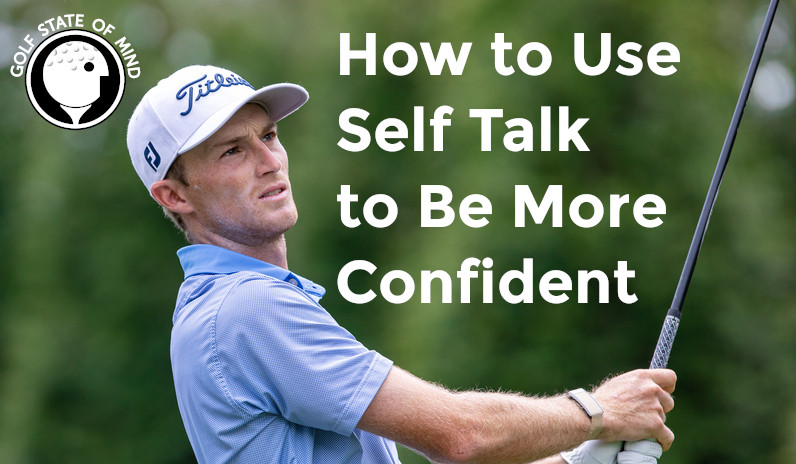
How to Create Better Self Talk for Golf
“I just tell myself positive affirmations on certain tee shots or when I’m feeling nervous and it calms me down.” – PGA Tour winner Max Homa
Most players think that confidence comes solely from past success, but they’re wrong. A huge part of your confidence comes from what you say to yourself about yourself in relation to the challenge in front of you. I.e., your “self talk”.
If you were to get an audio play-back of all your self talk during a round you would probably be shocked at how negative it is. Negative self talk will never help us. In fact it lowers confidence and puts a negative experience to memory.
So how do we change self talk for golf to build confidence and guide us towards the thinking, feelings and behaviors that are performance enhancing?
First we have to agree with the following assumptions:
- We will always hit some bad shots in any round of golf
- How those shots make us feel is out of our control
- We have time between how something makes us feel and how we respond to it in the Post Shot Routine
Types of Self Talk
There are 3 types of self talk: negative self talk, neutral self talk and positive self talk.
We already discussed there being no benefit at all from negative self talk. Neutral self talk for golf is simple instructions you can give yourself such as “Pick your target”, “Commit to the shot” or “Smooth tempo”. Positive self talk for golf, also known as motivational self talk, is giving yourself encouragement by telling yourself things like “You are a great putter”, “You can do it” or “You are great under pressure”.
Decide on Better Self Talk by Creating “Self Talk Statements”:
- Start by thinking of situations that self talk would be helpful i.e. when you are feeling nervous or after a bad shot.
- Write 3 positive and 3 neutral self talk statements. Your positive self talk statements must be credible. I.e. if you don’t believe it, it’s not going to work. For each one, write down what gives you the right to say that to yourself (i.e. a real experience or achievement).
E.g, I’m a mentally tough competitor! Followed by a specific time that you have been that player.
And, “See the target and commit to the shot” (in the Pre Shot Routine)
- Practice by saying them outloud and see how they make you feel. Experiment with different words and tones (saying something in monotone will have a different effect that saying it with energy).
- Be accountable for your self talk. Score yourself on it out of 10 after each round. How effective was your use of it? Was it more positive/neutral or negative? Would you change any of your statements?
With more intention for your self talk and more self awareness, you’ll become better at responding to your feelings at what happens in the round with better self talk for golf, rather than reacting with negative self talk. The result will be better control of your mental and emotional state and improved performance.


